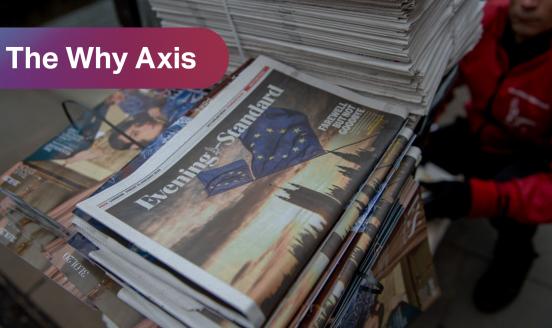Are the European Union’s new fiscal rules in trouble already?
The European Union’s fiscal framework, the European Commission’s attempt to coordinate the fiscal positions of member countries, will be reinstated in September for the first time since they were suspended at start of the pandemic. But given election uncertainty in France and the very real possibility of fiscal expansion, when savings are required, is the credibility of the rules already compromised, before they are reintroduced?
The suspension of the fiscal rules offered an opportunity to update what member countries perceived as ‘outdated’. But deciding on how to revise them was not easy. After painstaking negotiations, where member countries fought for what they each thought was important, a new set of fiscal rules were created. They are once again imperfect, albeit better than the previous set. All member countries see the need to have some fiscal coordination, if not minimal, to prevent excess debts from jeopardising the monetary union. So, some rules are better than no rules, and certainly better rules than what were there previously should be welcomed.
To prepare for the start of this framework, the European Commission put seven countries in the excessive deficit procedure (EDP) on Wednesday 19 June. Those are countries whose fiscal positions are deemed to need readjustment. Being placed under the EDP means that the country is under obligation to reduce its deficit below the 3% reference value and put its debt in a declining path. In practice this means that when the countries submit their multiannual spending plans to the European Commission for review in the autumn, they need to demonstrate how they will honour this obligation.
One of the seven countries that has been placed under the EDP is France. With a current debt more than 110% of GDP, France will need to find ways to consolidate and reduce its fiscal debt. My colleagues at Bruegel estimate that France will have to cut between 0.5% and 0.8% for at least the next four years, depending on the speed that this is required to happen.
However, none of the political parties that are currently running for elections in France have promised to cut spending. Quite the opposite in fact. The Rassemblement National, which is the favourite party to win, promises to go on a spending spree and even reverse President’s Macron pension reform. Come September, it is looking very unlikely that the next political entity in charge of putting together Frances’s budget for the coming years will comply with the diktat of the new fiscal rules.
This is where trouble starts. The European Commission will in principle have to escalate proceedings, but to where? The EDP itself foresees fines for non-compliant EU countries, but fines have never been issued in the history of the fiscal rules. The issue had always been both that fining a country that overspends is counterproductive and there seems to be a reluctance among finance ministers to accept fines for any colleague.
The European Commission will have to take a lot into consideration. Reprimanding and fining a far-right government in France, if elected, risks increasing the crevasse between a public that is becoming more anti-European and the Brussels establishment. Is this a risk worth taking when it comes to France?
There is a lot at stake. French exceptionalism and more broadly the double standard in the way that the European Commission monitored big countries in the past has undermined its credibility. Now, particularly if the far-right is elected in France, the inability to enforce EU rules will be seen as endorsing policies that are dangerous, and not just for the sustainability of the euro (for example democracy). After the financial crisis and the extremely invasive policies applied by the European Commission in programme countries, a hands-offs approach to European rules is no longer possible. Moreover, small countries will be watching particularly closely to see if a big country is again allowed to get away with not adhering to a common set of rules.
The European Commission is not in a good position despite the promise of the improved fiscal framework to enhance coordination. The first year of having these rules functioning was always going to be a hard one given the steep learning curve on implementing the rules. The French elections have made this first year even more difficult. It is up to the new Commission to rescue the credibility of the whole framework.



